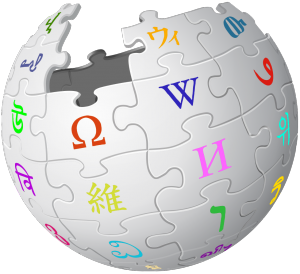Wikipedia Needs Philosophers
Wikipedia maintains a list of philosophy articles that need “attention from experts on the subject.”
You can find the list here. Wikipedia is the fifth most-visited site on the Internet (according to Wikipedia). It is certainly the place where many students begin (and, alas, end) their inquiries into philosophical subjects, so it behooves us that articles there are accurate.
If you’re an expert on any of the following subjects, consider seeing what kind of help is needed:
The page is updated regularly.
Thanks to Kelly Truelove for the pointer.



For many of us, Wikipedia burned that bridge with the Chalmers’ incident. There was a Crooked Timber post about this: http://crookedtimber.org/2007/02/04/wikipedia/
As someone who’s put way too much effort into attempting some very modest improvements at Wikipedia, my advice is: don’t waste your time.
Imagine you’re placed on a committee with three of your freshman students, two of whom are ardent fans of Ayn Rand and one of whom doesn’t give a rip about philosophy and is only there for gen ed credit, and you’re asked to put together an article on egalitarianism. You have professional expertise on this subject, which specially equips you to understand what the mainstream literature says and what interpretations are fringe. But you aren’t allowed to appeal to that expertise. Rather, decisions need to be based on a consensus of your committee, with everything cited to sources that you can agree are reliable. So, you predictably spend three months trying to convince your committee that Rawls and Rand are not on an equal footing with respect to well-considered views of egalitarianism. Finally you give up, having at least succeeded in securing two sentences on arguments for egalitarianism in preface of five paragraphs of half-baked criticisms. Two months later, long after you’ve stopped paying attention, someone else comes along and removes these two sentences.
Also, quite possibly, one of your Rand fans created half a dozen accounts in order to create the illusion of widespread support for their version of the article.
As Justin says, Wikipedia is a very popular website, and it’s where a lot of people get their first and last exposure to philosophy, so it’s a shame that its articles are of such a poor quality. But, sadly, I think its editorial process is so defective that time spent trying to improve the articles would be much better spent promoting credible sources of information like the IEP and the SEP.
I entirely agree. Wikipedia was set up to “democratize knowledge” and “take this out of the hands of so called experts.” But now we’re expected to turn around and lend a helping hand to a product that does not recognize our labor and encourages the idea that experts aren’t that important. For some reason I think I’ll pass.
I do agree that that is the case in philosophy entries in Wikipedia. But their model does seem to work pretty well for fields like math, physics, and computer science, in which entries tend to be of high quality. I guess the difference is that in philosophy non-experts tend to have strong opinion on the subject.
Wikipedia is too popular to ignore. Wikipedia stinks, but it is what people read, so we must fight to improve it. I’ve had mixed results trying to get truth on Wikipedia, but I have not been entirely unsuccessful. Yes, it is enormously frustrating and the system is absurd, but facing absurdity is the price of being involved in the real world. Sokrates had to face a lot of silliness too.
An alternative might be to warn students about the quality of Wikipedia, and refer them to sources such as IEP and SEP instead. I remember an instructor telling us this in an undergraduate class, and it worked well on me, though I’m not sure about others.
My impression is that most philosophy articles on Wikipedia require professional attention, in the sense that they are full of elisions, misinformation, undue focus on tangentially related topics, and other issues. Almost any philosophical topic I look up on Wikipedia tends to be in very bad shape. I have not tried to fix anything, having heard horror stories akin to Levi Roth’s about the efficacy of these kinds of efforts. But for anyone interested in helping out, I would suggest checking out many other articles, since the list above is hardly comprehensive.
I gave up on the usefulness of Wikipedia as a resource for philosophy students when I had a look at the history of the page on Contractualism and realised that it had essentially been someone’s undergrad essay for 4 years despite numerous people making edits to it. (Though if you’ve got a reasonably childish sense of humour, it’s worth looking at the section on “What basic ideas does contractualism develop?” for a prime example of the kind of thought experiment a 19 year old may come up with after several litres of energy drink when forced to write an essay the night before the deadline – https://en.wikipedia.org/w/index.php?title=Contractualism&action=history see any version between 14/10/07 and 30/10/11)
Sorry, first sentence should read something like “I gave up on the idea that Wikipedia could be useful…”, multitasking isn’t my forte 🙁
I didn’t realize how childish my sense of humour still is before reading that. That’s quite something.
I was about to make a comment about the gender and racial biases in Wikipedia being a deterrent from us working on it, but I suppose if that were a sufficient reason then we’d never get any regular academic work done either.